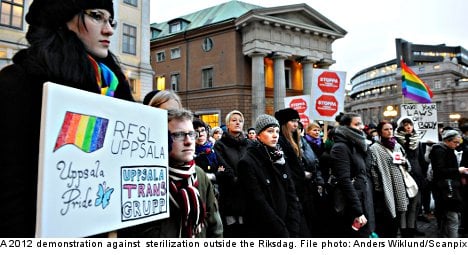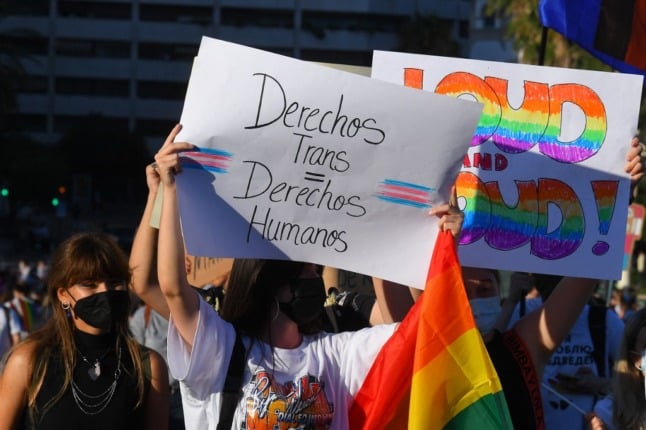The Stockholm administrative court of appeal recently ruled that the practice of forced sterilizations, which dated back to a 1972 law on sexual identity, was unconstitutional and in violation of the European Convention on Human Rights.
In its December 19th decision, the court said the law did not respect civil liberties as guaranteed by the constitution, and was discriminatory since it solely targeted transgender people.
The law stated that a person who wanted to change sex legally must be infertile. In practice, this lead to transgendered patients being sterilized, as they had to go through with the entire process including gender reassignment surgery in order to have their ID documents changed.
Some Swedes chose to wait to change sex legally in order to have their own biological children.
As opposition to the law grew in Sweden it also made headlines abroad. LGBT rights organization All Out hand-delievered 80,000 protest signatures to the Swedish Prime Minister Fredrik Reinfeldt in January 2012, the Global Post reports.
The new ban on the practice entered into force on Thursday after an appeal period ended, judge Helen Lidö said. The government had planned on removing the sterilization requirement on July 1st, 2013 but the ruling sets legal precedent from now on.
The head of the Swedish Federation for Lesbian, Gay, Bisexual and Transgender Rights (RFSL), Ulrika Westerlund, hailed the change, noting that many of those who were sterilized under the old law now hope to be compensated by the state.
“If lawmakers take the initiative to adopt a law outlining damages, we will not file a lawsuit,” she said.
She said 200,000 kronor ($31,000) per person would be a “fair sum.”
In 1999, the Swedish parliament adopted a law granting damages of 175,000 kronor to victims of forced sterilizations under a eugenics programme that existed from 1935 until 1996.
Between 80 and 90 sex change patients who underwent forced sterilizations have turned to RFSL in a bid to possibly seek damages from the state.
The administrative court’s ruling came after an unidentified plaintiff who wanted to undergo a sex change but refused to be sterilized took his case to the Swedish board of health which then took it to the court on his behalf.
The Swedish parliament had actually adopted a law last autumn banning the forced sterilization of transgender people that was to enter into force on July 1, but the administrative court’s decision entered into force first.
Between 1972 and 2011, 865 people officially requested a sex change, according to statistics. Some 500 went through with the operation.
AFP/The Local/at



 Please whitelist us to continue reading.
Please whitelist us to continue reading.
Member comments